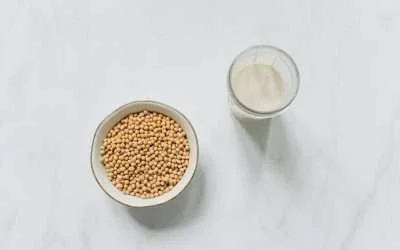Trying to eat healthy can be a little bit like walking through a path in a dense jungle. With every twist and turn in the road your bombarded with more and more information saying “this way is the right way, all the others are completely wrong” leaving you feeling more lost, disoriented and confused with every passing turn. Sometimes the best way through is to just take a step back, look at the whole picture and get a clear understanding. In this article I’m going to show you how.
Why is Nutrition so Confusing?
It’s easy to understand why nutrition can seem so confusing. You open up your phone, you go online and scroll the news or social media. There are so many different headlines with conflicting information, different celebrities promoting different diets, and so many wellness influences saying that their way is the right way. They’ve got the secret to health; you just have to buy their program “link in the description” – it’s fifty dollars, by the way…
A lot of these influencers are exploiting people’s vulnerabilities; people that genuinely have a disease that they want to get support with. Maybe they’re wanting to lose weight and have more energy, maybe they’re wanting to have a healthy family and raise their kids. So it’s understandable that people get confused because there’s so much information. How can we start to make sense of it and find a clear path through this treacherous jungle?
Making Sense of Nutrition
So here are a few of the most common things that I see online that can be confusing for people. The first one is picking a certain chemical or ingredient in food and demonizing it.
Have you guys heard of this chemical dihydrogen oxide? It’s incredibly toxic. It’s in all of your food, and having too much of it can literally kill you. There are thousands of studies showing the negative health effects on humans.
Whoa, take a step back here. Dihydrogen oxide is another name for water, and as you can see, if I present information like that, it can sound scary. And it’s true, having too much water can kill you, but I think most of us can agree that water isn’t something we should be excluding from our diet. It’s generally quite healthy, right? It’s the same thing with oxygen. If we have too much oxygen, we can also die, but no one is selling us to stop breathing. But it’s the same thing with many of these claims that we see online. People saying “this ingredient is toxic”, “this ingredient is poison”. We need to understand the dose makes the poison, and just because eating kilograms and kilograms of something could potentially lead to an amount that might be dangerous, the amount of food that people are eating in day-to-day life isn’t getting them anywhere near the exposure level that would be required for a negative health outcome. So stop following people online that are telling you foods are toxic. It is just BS!
Another one I see often is people taking research from a specific population and then making broad claims and applying that to everyone. For example, with gluten. There’s a disease called celiac disease, which is an autoimmune condition essentially where people cannot eat any gluten-containing foods because if they do, their body will have a serious reaction. And I’ve seen people making videos online saying “gluten is toxic, gluten is inflammatory, it will destroy your gut”, and sharing research on people with celiac’s. And while that is true for people with celiac’s, that’s only about one percent of the population. And for most people, gluten-containing foods, like whole grains, can be very health-promoting. This is similar to looking at research on people with broken ankles and being like, well, they have pain when they walk, so no one should ever walk because they’ll have pain in their ankles. Can you see the problem with this thinking here? We can’t just apply something that affects a small group of people and make broad statements of applying that to everyone.
Non-experts present themselves as experts
Part of the reason for the confusion is everyone loves to talk about nutrition. For whatever reason, a lot of people with no expertise or understanding – or people with expertise in other fields, such as neuroscience, engineering, or journalism, love to start talking about nutrition when they don’t necessarily understand the principles underlying the science. It does take time and effort to get to understand the topic well, and a lot of these influencers don’t do that. They promote controversial things that get clicks, likes, and help them sell their programs or supplements.
An important thing to understand with these influences is they don’t necessarily care about your health. They’re not going to be there in 10 years when you’re experiencing trouble from following their advice. They just want to make money from you. So maybe nutrition really isn’t that confusing. You might just be following the wrong people.
Seeing From a Holistic Perspective
So now we’re starting to see who is putting up these signs that are confusing us on this path through the jungle, but now let’s get an understanding of how we can really make sense of nutrition. This might be taking a step back from that forest, that jungle and taking a look at the whole picture so we can see it more clearly. And it’s the exact same thing with nutrition. Looking at it from a holistic perspective, we can start to understand it more clearly. We have a lot of research looking at what are called dietary patterns, which is essentially just a way of eating of different people. When we look into the research, it’s really clear that people eating dietary patterns comprised of mostly whole foods have the best health outcomes and the lowest rates of disease, and people that are incorporating more processed foods – we call it the standard American diet or standard Western diet, the standard processed food diet – people that are eating this way tend to have higher rates of disease. So the most important thing is focusing on our overall dietary pattern, not specific foods, because any food can be included in a healthy dietary pattern. This helps us to avoid this unhealthy thinking of good and bad foods because, let’s face it, we all have to eat every day, and if we’re constantly worrying about what foods are good for us, what foods are bad for us, this can lead to a lot of anxiety and can actually lead to some disordered eating problems down the line. We want to be creating a healthy relationship with our food, and when we come at it from this perspective of a dietary pattern, we know we’re including mostly whole foods. We can totally include whatever other foods we want in that theme. You can still eat your favourite ice cream or chocolate, don’t worry about it! And it’s so important to listen to our body, to get in tune with our natural hunger cues, and bring some more mindfulness to our meals. It could just be slowing down and taking a deep breath before we start to eat, tuning in with ourselves, and knowing that we’re nourishing ourselves with this meal. Switching that mindset away from fear and into gratitude can be really powerful for this.
The Importance of Critical Thinking
And the final thing for getting a more clear understanding of this sometimes seemingly treacherous part thoughts is to just employ some basic critical thinking skills. The essence of critical thinking is essentially not just accepting everything that we see. And I mean, it makes sense, right? We shouldn’t just believe everything we see because how do we know if someone is telling the truth? However, I see this so often – people following the latest diet, the latest trend, the latest influencer, and just doing whatever they say without any questioning. And when we start to ask some questions, we can really start to peel back some layers and see more clearly. If someone’s saying “this is the one way, this is the one diet that’s going to cure all your disease”, we can maybe see, are they sharing any studies to support this? If they are, we can look into them. Or maybe they aren’t. What sort of studies are they talking about if they’re talking about any, and how do they support this? And when we look into it, oftentimes, people just post a photo of a scientific study saying it supports their claim when really, it has nothing to do with what they’re talking about. And this is like what I talked about earlier with celiac disease and people saying that no one should eat gluten just because a small percentage of the population can’t have it.
Cultivating a Healthy Relationship With Food
When it comes to making sense of nutrition and dealing with anxiety that we may have around food, it’s helpful to take a step back, connect back to the basics, have a broad picture, a holistic view. Looking at our overall dietary pattern, if we know that we’re incorporating mostly whole foods, we know that we’re eating in a way that’s going to support our health in the long term. If we’re constantly switching from one thing to another based on the latest Instagram post influencer or article, we’re missing out on the amazing opportunity of nutrition to support our physical health, our energy, and allow us to enjoy our life, spend time with loved ones, have our family, go after our dreams, start a business, explore and travel the world, or whatever it is you want to do.
It’s so important to look at the big picture because if we don’t, it can be really easy to get lost down the windy and treacherous path of nutrition misinformation.
Working With a Professional
And if you need further help with this, it is literally my job as a nutritionist to help you to make positive change in your life regarding the food that you’re eating. So if you need some further support, it can be a great idea to work with a professional who can help you. And there are so many amazing nutritionists, dietitians, and other health professionals out there that are so knowledgeable and can be incredibly supportive in your journey. Check out my website for more information and to book an online session from the comfort of your own home!
So I hope this has helped you to get a bit more of a clear understanding of nutrition, some of the things that people do to confuse and manipulate us, maybe to make money for themselves to get more likes or followers or clicks or whatever it is. And a reminder to take a step back if we’re feeling confused or overwhelmed, look at the whole picture. Leave your comments and thoughts down below. What did you take away from this? All the best with your health journey!




0 Comments